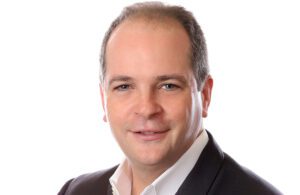
The AirSense 11 CPAP system [Image courtesy of ResMed]
The opening of a new plant — billed as the biggest of its kind on Earth — brings ResMed closer to catching up with skyrocketing CPAP demand.
That was one of the big takeaways from ResMed CEO Mick Farrell’s talk at the annual J.P Morgan Healthcare Conference in San Francisco yesterday. The San Diego–based company has found supply chain challenges hindering its ability to meet the demand that surged after a serious recall forced competitor Philips out of the market.
“Every month and every quarter we get closer to meeting that demand,” Farrell said.
ResMed held a grand opening for the 270,000-square-foot Singapore plant in November. Farrell yesterday described it as the biggest respiratory devices manufacturing facility on the planet.
“We have the capability in that plant to take the whole of the market’s needs for production. So as we ramp up our capabilities for semiconductor chips, we’ll be able to take up more of the demand that’s out there,” Farrell said.
Semiconductor supplies remain a challenge. ResMed’s connected respiratory devices are competing for chips with the auto industry, so softening demand for vehicles should help ResMed, said President and COO Rob Douglas.
ResMed’s advantages in seeking chip supplies included the predictable demand for CPAPs, forecasted volume increases and the ability to extend commitment times for up to many years, Douglas said.
More about the CPAP shortage

ResMed CEO Mick Farrell [Photo courtesy of ResMed]
Meanwhile, Farrell sees Philips starting with zero patients as it re-enters the CPAP market — whenever that happens. At this point, the Dutch medtech giant has been out of the market for more than 18 months as it grapples with a recall involving 5.5 million CPAP and BiPAP ventilators and other respiratory devices. The recall involves sound abatement foam that could potentially break down and enter devices’ airway paths.
The FDA announced in November that it has received more than 90,000 reports of problems, including 260 mentioning deaths. The news came shortly after the FDA and Philips said there were new problems in some ventilators that were reworked as part of the company’s massive respiratory device recall.
The shortages produced by the recall have created a situation where some patients have to wait up to 12 weeks to receive a CPAP after a sleep apnea diagnosis, Farrell said. He said it was wrong for people with a medical condition to wait that long for treatment.
Said Farrell: “There’s still excess patient demand, and we see that as a humanitarian emergency.”